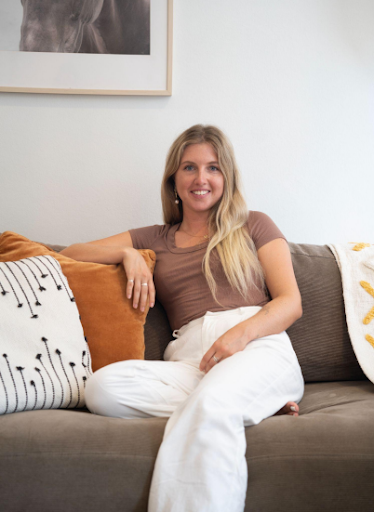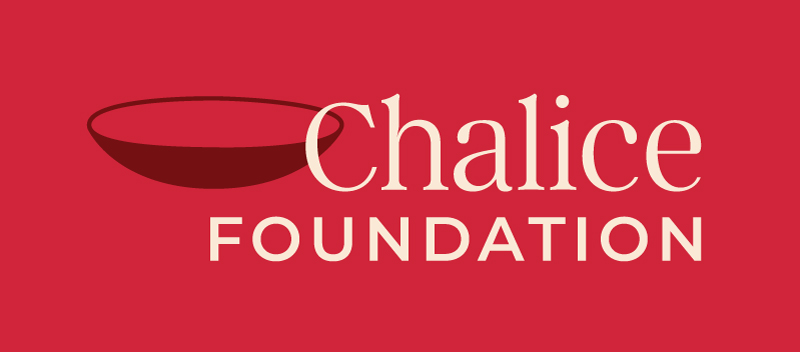We are so excited to publish a two-part series introducing Seed Cycling (SC) and exploring hormonal health during the menstrual cycle with women’s health clinical nutrionist and The Seed Cycle team member Sarina Coventry, read on for Part I.
We are entering an exciting time in history where serious enquiry into women’s health is finally starting to happen. Conversations are also blossoming about our menstrual cycle, the concept of cyclical living, natural methods of contraception and the power of food as medicine to support women’s hormones.
The narrative commonly shared is that, as women, we must suffer each month as a normal part of our menstrual cycle. A narrative that so many women have internalized and so feel little hope for the future of their dreaded periods. As a women’s health Nutritionist, I see the cracks surfacing, and a new wave of women wanting to shift this narrative. These horrific periods and hormonal symptoms may be common, but no, they are not normal.
Finally, doctors are being called out for telling women that their suffering is in their head, that their intense pain, mood swings or debilitating bleeds are something to be endured or medicated. Finally we are seeking alternatives, whether that be about eating, living or moving in a way that supports our hormones and learning to work with our body, rather than against it.
At age 28, Sarah* was no stranger to monthly battles with PMS and painful periods. She faced hormonal acne and extreme mood dips in the week before her period and, during her bleed, severe cramps that often left her reaching for pain meds. Sarah’s pain impacted on her ability to work, grocery shop and look after herself adequately, and during the first few days of her period the couch and hot water bottle were her best friends.
Sarah’s acne would rear its head a week before her period every month and leave her self-conscious and fed-up as tiny little pimples dotted her chin and jaw. At the same time, she felt like someone had dimmed the light on the sparkly version of herself as shifts to her mood left her questioning her job, her relationships and what brought her joy. A few days after her period commenced, the light would mysteriously turn back on. Every single month, like clockwork, she faced the same battle.
After numerous doctors appointments, the recommendation of more and more painkillers and prescriptions for the oral contraceptive pill (OCP) to manage her skin concerns, Sarah grew tired of the same limited options. She knew that these weren’t going to solve the root cause of her issues and felt that there had to be another way.
Sarah trawled the internet for blogs, books and podcasts that could provide her with an alternative and, ideally, natural solution that would improve her skin, mood and period pain. She learnt that bloating, heavy or irregular periods, pain, acne, food cravings, mood swings, fertility struggles and breast tenderness were all signs of a hormonal imbalance. She realised that nearly all of her friends
experienced at least one of these, but often many, and that maybe battling with period pain and PMS symptoms such as her hormonal acne and dramatic mood shifts weren’t that normal after all.
In her research Sarah came across a very specific “food as medicine” practice called Seed Cycling(SC). This involved consuming four different seeds at specific times of the month. She read that this technique was meant to help alleviate symptoms associated with hormonal imbalances, such as the hormonal acne, mood swings and painful periods that she experienced. What Sarah loved about this idea was that it was natural and, if it worked, might provide solutions to her monthly health challenges.
Sarah read that SC works to restore the delicate hormone balance by harnessing the nutrient properties of pumpkin seeds, flaxseeds, sunflower seeds and sesame seeds. Their individual benefits were categorized into Phase 1 (the follicular phase) and Phase 2 (the luteal phase).
As Sarah embarked on her SC journey, she learned the importance of consuming phase-specific seeds daily. Raw, organic, and ground seeds were to be her allies, and a trusty blender helped make the process a breeze. She consumed a tablespoon of ground pumpkin seeds and flaxseeds every day during phase 1 (her follicular phase) and a tablespoon of ground sunflower seeds and sesame seeds every day during phase 2 (luteal phase). In Sarah’s case she ate these seeds mixed with yoghurt or sprinkled on salad, though there are many ways to cook with them to suit different tastes.
After SC consistently for three months, Sarah began to notice huge shifts to not only her premenstrual symptoms, but to her overall health. Her skin was clearer, her energy was much more consistent and periods were almost pain free. Sarah also had a new sense of connection to her body that she hadn’t experienced before.
Sarah noticed there was a lot of discussion of SC on the internet, but wondered about the science behind it and if doctors were aware of the benefits for women’s health and hormones. Turns out it wasn’t just a trend. Esteemed hormone experts like Dr. Mark Hyman, Dr. Jolene Brighton, and Alissa Vitti had already recognized its potential to support women’s hormonal health.
Research has recently been published on this which offered a deeper understanding of the power of SC, like a review in January 2021 and, more recently, a study in June 2023 on Seed Cycling for PCOS.
After having such a beneficial shift in her menstrual experience Sarah was motivated to incorporate SC into her daily routine permanently. Thrilled by the effect of hormonal balance Sarah naturally shared her SC journey with her friends, her sisters and her Mum. And also that it could be helpful at all stages of life, whether just starting the menstrual journey, planning a pregnancy, considering life without the Pill, or transitioning through menopause, SC offers a natural and preventative solution to issues related to hormonal imbalances.
Next week we will publish Part II of Sarina’s blog, which focuses on hormonal balance (or not!) across our menstural cycle.

Sarina Coventry
Sarina Coventry, Women’s Health Clinical Nutritionist (BHSc) / EFT Tapping Practitioner and one of the team at The Seed Cycle. My passion is to support women in processing trauma, achieve nervous system regulation and healthy periods.
To contact Sarina for professional support please visit www.sarinacoventry.com


